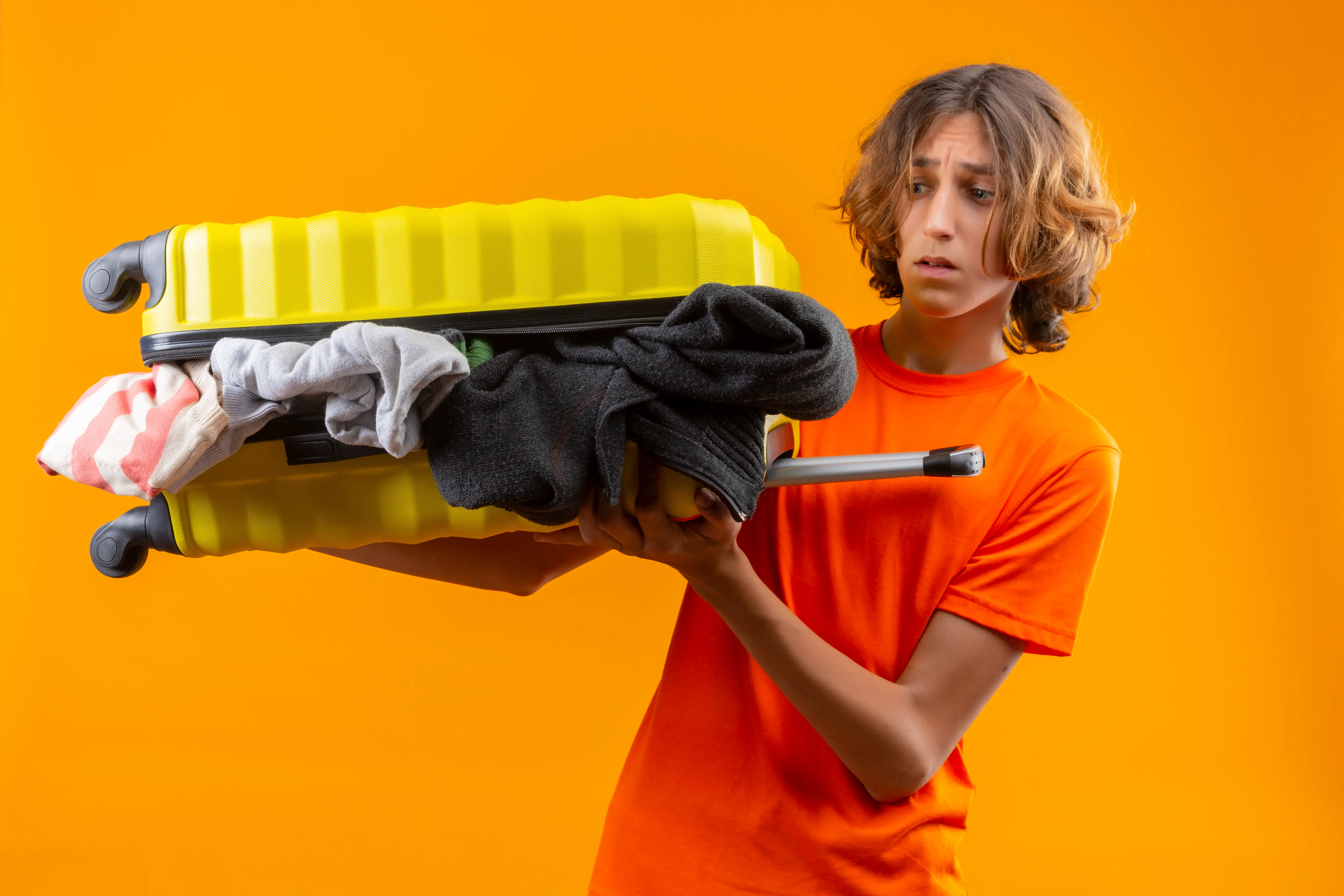You create a list of items to pack, attempt to adopt minimalist principles. You end up with three unnecessary outfits and no adapter while bringing the one essential item that you promised not to bring along.
You’re not alone.
Packing isn’t just logistics. It’s psychology. The process of packing reveals our methods of future prediction as well as our anxiety management techniques and our unsuccessful attempts to anticipate all potential scenarios.
This article investigates the reasons behind our tendency to pack incorrect items and provides solutions to overcome this habit.
Why We Get Packing Wrong: The Psychology Behind It
1. We Pack for Ideal Scenarios — Not Real Ones
We picture perfect weather alongside the “fancy dinner” and unexpected adventures. Somehow, we bring heels along with three paperbacks and that linen shirt which we have only worn twice during the past two years.
But travel rarely goes as planned.
2. We Confuse Preparedness With Control
The act of packing enables us to maintain control during times of uncertainty. The more we pack for potential situations the more we end up carrying both unneeded stress and additional weight.
3. We Forget What We Actually Use
Human beings demonstrate poor ability to recall their past actions with precision. You probably overpacked during your previous journey but failed to examine which items remained unused so you brought them again.
Common Packing Mistakes (and What to Do Instead)
| Mistake | Swap With |
|---|---|
| Packing for every weather | Check real forecasts + pack layers |
| 5 pairs of shoes | 1 pair walking, 1 multipurpose |
| Too many “outfits” | Focus on mix-and-match basics |
| Books & journals | Use Kindle app or take one slim paperback |
| Carrying full-size products | Use solid toiletries or travel bottles |
The Two-List System: How to Pack Based on Reality
Step 1: Make a “Fantasy List”
Write everything your brain thinks you need. Don’t hold back.
Step 2: Make a “Used List”
Remember your previous journey. What items did you really need to use every day? Write only those.
Step 3: Cross-Reference
The items that appear on both lists should be placed in the bag. Everything else? Leave it.
Real-Life Moment: My Friend’s Backpacking Regret in Croatia
My close friend embarked on her first solo Croatian journey with an excessive amount of luggage that seemed to be prepared for both a photo shoot and survival course and beach club activities. She brought:
- 3 pairs of jeans (wore 1)
- A hardcover book (read 20 pages)
- Hiking boots (never used)
- A drone (didn’t even unpack it)
What did she actually wear? She wore a comfortable t-shirt together with a hoodie and shorts and her everyday sandals.
She experienced back pain while her suitcase was in disarray and she had to pay extra fees for checked bags during both her flights.
When she returned, she laughed and said,
“If I didn’t use it once, I’m never packing it again.”
Lesson learned — and passed on.
Smart Packing Tools That Help You Stay Minimal
- PackPoint creates packing lists through its analysis of trip types and weather conditions.
- Google Keep or Notion – Reusable personal packing templates
- Eagle Creek packing cubes – To organize + restrict overpacking
- Universal travel adapter – One tool for global compatibility
- Solid toiletries (like Lush) – No liquid restrictions, more space
Expert Tip: The “1-2-3 Rule” for Clothing
Pack:
- 1 hat/scarf
- 2 pairs of shoes
- 3 bottoms
- 5 tops
Everything should mix-and-match. Bonus if it all fits in a carry-on.
The Real Cost of Overpacking
The wrong items you pack create two problems: they make your suitcase heavier and they ruin your travel experience:
- You move slower.
- You pay more in baggage fees.
- You waste your time handling your belongings instead of creating wonderful experiences.
- And ironically, you’re still not prepared.
The practice of packing fewer items does not require you to endure hardships or deny yourself anything. It’s about freedom.
The absence of pointless decisions gives you freedom. Freedom from physical weight.
Freedom to be present.
Your decision to pack only essential items creates space that allows you to move freely while gaining clarity and experiencing joy.
When you travel avoid the habit of preparing for all your potential selves.
Pack only the essentials for the person who will actually be traveling which is you.
What’s the most useless thing you’ve ever packed? Share your packing fail (or hack) in the comments — your story might save someone a suitcase disaster.


